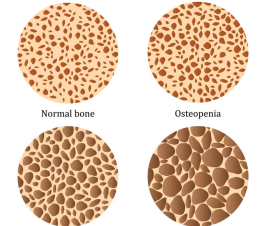Up to three cups of coffee per day is associated with a lower risk of stroke and fatal heart disease, according to research presented at ESC Congress 2021.1,2
“To our knowledge, this is the largest study to systematically assess the cardiovascular effects of regular coffee consumption in a population without diagnosed heart disease,” said study author Dr. Judit Simon, of the Heart and Vascular Centre, Semmelweis University, Budapest, Hungary.
“Our results suggest that regular coffee consumption is safe, as even high daily intake was not associated with adverse cardiovascular outcomes and all-cause mortality after a follow-up of 10 to 15 years,” she continued. “Moreover, 0.5 to 3 cups of coffee per day was independently associated with lower risks of stroke, death from cardiovascular disease, and death from any cause.”
Even though coffee is among the most consumed beverages in the world, little is known about the long-term impact of regular consumption on cardiovascular health.
This study investigated the association between usual coffee intake and incident heart attack, stroke and death. The study included 468,629 participants of the UK Biobank with no signs of heart disease at the time of recruitment. The average age was 56.2 years and 55.8% were women.
Participants were divided into three groups according to their usual coffee intake: none (did not consume coffee on a regular basis, 22.1%), light-to-moderate (0.5 to 3 cups/day, 58.4%) and high (more than 3 cups/day, 19.5%).
The researchers estimated the association of daily coffee consumption with incident outcomes over a median follow-up of 11 years using multivariable models. The analyses were adjusted for factors that could influence the relationship including age, sex, weight, height, smoking status, physical activity, high blood pressure, diabetes, cholesterol level, socioeconomic status, and usual intake of alcohol, meat, tea, fruit and vegetables.
Compared to non-coffee drinkers, light-to-moderate consumption was associated with a 12% lower risk of all-cause death (hazard ratio [HR]=0.88, p<0.001), 17% lower risk of death from cardiovascular disease (HR=0.83, p=0.006), and 21% lower risk of incident stroke (HR=0.79; p=0.037).
To examine the potential underlying mechanisms, the researchers analyzed the association between daily coffee intake and heart structure and function over a median follow-up of 11 years. For this, they used data from 30,650 participants who underwent cardiac magnetic resonance imaging (MRI), which is considered the gold standard for the assessment of cardiac structure and function.
Dr. Simon said: “The imaging analysis indicated that compared with participants who did not drink coffee regularly, daily consumers had healthier sized and better functioning hearts. This was consistent with reversing the detrimental effects of ageing on the heart.”
She concluded: “Our findings suggest that coffee consumption of up to 3 cups per day is associated with favorable cardiovascular outcomes. While further studies are needed to explain the underlying mechanisms, the observed benefits might be partly explained by positive alterations in cardiac structure and function.”
1.European Society of Cardiology. “Light-to-moderate coffee drinking associated with health benefits.” ScienceDaily. ScienceDaily, 30 August 2021. <www.sciencedaily.com/releases/2021/08/210830075619.htm>.

Razi Berry is the founder and publisher of the journal Naturopathic Doctor News & Review, which has been in print since 2005, and the premier consumer-faced website of naturopathic medicine, NaturalPath. She is the host of The Love is Medicine Project docuseries, The Natural Cancer Prevention Summit, The Heart Revolution-Heal, Empower and Follow Your Heart, and the popular 10-week Sugar Free Summer program. From a near death experience as a young girl that healed her failing heart, to later overcoming infertility and chronic fatigue syndrome and fibromyalgia through naturopathic medicine, Razi has lived the mind/body healing paradigm. Her projects uniquely capture the tradition and philosophy of naturopathy: The healing power of nature, the vital life force in every living thing and the undeniable role that science and mind/body medicine have in creating health and overcoming dis-ease. You can follow Razi on social media: Facebook at Razi Berry, Instagram at Razi.Berry and join the Love is Medicine group to explore the convergence of love and health. Look for more, and listen to more Love is Medicine podcast episodes here.

















